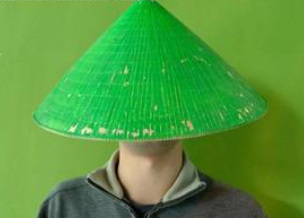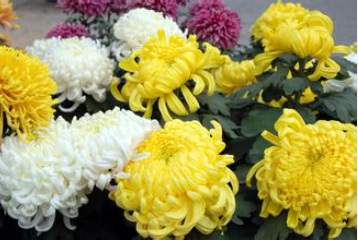Giving Gifts to Chinese People: Beware of Certain Taboos
Strengthening relationships and building alliances is an essential part of every culture, and gift-giving plays a vital role in achieving this. Similarly, in Chinese culture, presenting gifts is a time-honored tradition that carries great significance.
However, offering certain gifts to a Chinese friend or acquaintance may be considered offensive or disrespectful. So, to ensure your gift is well received, it’s essential to avoid these seven Chinese taboos when choosing a gift.
1. Clocks

Chinese people avoid giving clocks as gifts because the phrase 送钟 (sòng zhōng; give a clock) sounds similar to 送终(sòng zhōng; attend a funeral). This connection makes the elderly and other Chinese people feel like they are being cursed if they receive a clock as a gift.
2. Umbrellas
Similarly, the Chinese word for “umbrella” (伞, sǎn) sounds like “separate” (散, sàn). When you give an umbrella as a gift to your friend, it may imply that you want to end your relationship with them. Moreover, presenting an umbrella to a married couple suggests that you want them to get a divorce! (Note: It is perfectly fine to offer an umbrella if it is actually raining.)
3. Green Hats

In Chinese culture, a green hat is a metaphor only associated with men, indicating that their wife or girlfriend has been unfaithful to them.
Why does “green hat” (绿帽子, lǜ màozi) carry such a specific meaning in China? One story recounts an incident in ancient China when a merchant’s wife had an affair with a cloth seller. She crafted a green hat for her husband to wear, signaling to the cloth seller that he could meet his lover whenever the husband was away on business. Since then, “green hat” (绿帽子, lǜ màozi) has become a symbol of a woman betraying her husband or boyfriend.
4. Sharp Objects

Sharp objects like knives or scissors are associated with cutting and represent the act of severing a relationship. In Chinese culture, there is a common saying, “一刀两断” (yì dāo liǎng duàn, meaning “cut in two with one stroke of a knife”), which signifies the end of a relationship between two people. Therefore, giving someone a sharp object implies a desire to cut off the relationship with them.
5. Chrysanthemums

While flower arrangements are typically acceptable gifts, it is important to avoid giving chrysanthemums (菊花, jú huā) in Chinese culture. Chrysanthemums are traditionally associated with mourning the death of someone and are often placed on graves. As a result, it is considered inappropriate to give chrysanthemums or images of them as gifts to celebrate joyful occasions or memories.
6. Black and White Gifts

In China, the colors white (白色, bái sè) and black (黑色, hēi sè) are linked to bad luck due to their association with funerals. White symbolizes profound sorrow, while black represents grief and mourning. To avoid any negative connotations, it is advisable to steer clear of gifts that are predominantly black or white in color, as well as wrapping paper or envelopes in these colors.
7. Candles

Avoid gifting candles, as they are connected to rituals for the deceased. Instead, if you receive an invitation to a funeral, it is preferable to follow the Chinese custom of giving cash to the grieving family. Money is considered a means of expressing condolences and assisting with funeral costs. Similarly, in the context of weddings, cash gifts are seen as a gesture of wishing the newlyweds good luck.
How to Give a Gift in Chinese Culture
Symbolism and presentation hold greater significance than the actual gift itself in Chinese culture.
Gift-giving is a solemn ritual governed by ancient traditions, including the practice of initially declining a gift two or three times (or more) before accepting it. Don’t give up on the first refusal, but remain attentive to genuine refusals.
Furthermore, it is customary for Chinese recipients to not open gifts immediately upon receiving them. Instead, they prefer reciprocating with another gift rather than sending a “thank you” card. Hence, it is best to refrain from opening a present in front of the giver unless they insist, and expressing appreciation for their gift is appropriately done by giving another gift in return.
In conclusion, gift-giving is a significant part of Chinese culture, and following the appropriate etiquette can help strengthen relationships and build alliances. By avoiding the seven taboos listed above, you can show respect for Chinese customs and demonstrate your understanding and appreciation for their culture.
Remember that in Chinese culture, the symbolism and presentation of a gift are more important than the gift itself. So, when giving a gift to a Chinese friend, take the time to choose something thoughtful and meaningful, wrap it beautifully, and present it with sincerity. Your efforts will be greatly appreciated and will go a long way in building a positive and lasting relationship.






I want to let you know the information you provided regarding Chinese culture was very helpful. I appreciate your time.
Thank you